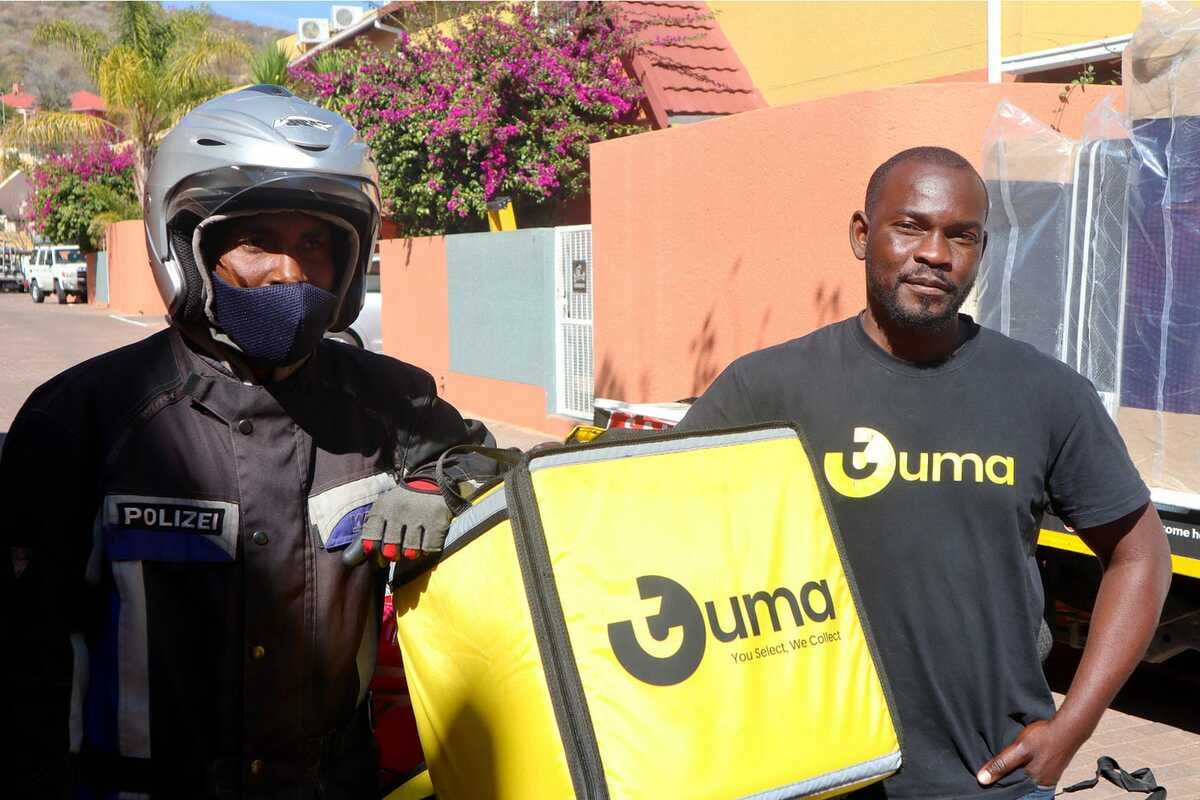
## After noticing gaps in the parcel delivery value chain, Antonius Immanuel decided to build a climate-conscious courier business, focusing on on-demand delivery services that will run exclusively on a fleet of electric motorised transport in one of the world’s sunniest cities.
By Vitalio Angula, bird story agency
It’s rush hour and the streets are noisy with the hustle and bustle of life – and the inevitable noise of internal combustion engines. That’s one noise that Antonius Immanuel would like to hear less of in the Namibian capital. In fact, from his office in Ludwigsdorf, in the far east of Windhoek, Immanuel - a techie and a budding entrepreneur – sees the streets of Windhoek as the perfect location for a silent, electric-powered delivery fleet.
Immanel has just returned home from a meeting about client mapping and is fired up about his company's prospects.
“The market loves our service offering, since inception we have carried out over 5000 deliveries. This exponential growth requires that we increase our fleet” he said.
“We have formed a partnership with M-Auto in India and Blitz, which is a South African based Dutch company for the supply of more electronic bikes to fulfil our demand which currently outstrips our supply.”
The delivery service, TUMA, recently signed a contract with the Communications Regulatory Authority of Namibia for the distribution of its parcels. It is one of the biggest deals the firm has bagged since its launch in February 2021.
With its bright yellow signature, the TUMA, door-to-door delivery service is already changing the delivery and courier landscape in Windhoek. Tuma is a Kiswahili word for “send”.
According to Immanuel, TUMA is now one of the fastest-developing tech startups in that market, allowing users to order from different stores and track their goods as they are being delivered at their doorsteps. Despite initial hiccups, he has ensured that clients receive their orders within 30 minutes.
That is where the electric component comes in. While the environmental angle is a big plus, as are quieter streets, Windhoek is not a big city. That makes it perfect for the shorter rides where electric vehicles make huge financial sense.
With petrol and diesel hitting 16 Namibian dollars (approximately 1 US dollar) per litre, Immanuel told bird the move to use electronic cars, motorbikes and solar-powered bikes was a strategic bid to widen the profit margin of his service and riders. At the same time the service, which uses an app designed by his IT team, looks to offer services to companies aiming at minimizing their own digital footprints, whilst cutting operational costs.
Immanuel regards the demand for more sustainable services from private companies and the government, as a game-changer.
By publically aligning his company with the United Nations’ Sustainable Development Goals of committing to cutting out fossil fuels which contribute negatively to climate change, he has been able to bring onboard clients he may not have expected previously.
The University of Namibia computer science graduate told bird he was passionate about efforts to save the planet, asserting that businesses that are not climate-conscious will ultimately perish. The deliveries entrepreneur, who also has a masters degree in biometrics from the University of Paris, believes his company is a plug-in for companies that need to move with the times.
“Digitalization is the name of the game...not to be too technical, we bring together vendors, merchants and their clients. Whether individual or corporate!”
Immanuel says he made a shift to green energy in line with the Paris Agreement on Climate Change, there is an additional reason why he is now also adding an electric car to the fleet. And this because, when it rains in Nambia, it rains hard.
“Last year it was raining on Valentine’s Day and we could not fulfil all our orders much to the dismay of our customer so we have now acquired and tested the Nissan Leaf electric vehicle which can go between 6 and 8 hours on a single charge,” he explained.
“Our electronic bikes go up to 115 kilometres on a single charge and that is why we have partnered with Namibia University of Science and Technology (NUST) students to build our own solar charging points in anticipation of our expanded fleet,” he said.
Namibia is one of the sunniest countries in the world with an average of 300 days of sunshine a year, so much so that local venture SunCycles is even offering e-bikes powered entirely by solar.
It hasn’t all been sunny skies for TUMA, however. The company underwent an early pivot, after focusing on the wrong segment of the market.
“Although we started off with the vision of being a food delivery service we quickly needed to diversify and expand our service offering in accordance with our clients’ needs and demands,” he explained.
“Apart from making food deliveries we also deliver documents and parcels for our clients. However, to our surprise, flowers have become our main source of revenue. With Valentine’s Day coming up, we already have pre-orders for individuals who trust TUMA as their trusted partner in making sure their flowers are delivered on time,” Immanuel added.
A TUMA highlight was when the startup got an order to deliver flowers to State House as a gift to the first couple on their sixth anniversary.
bird story agency